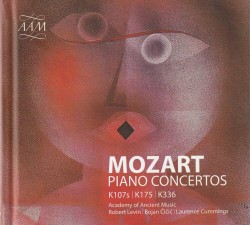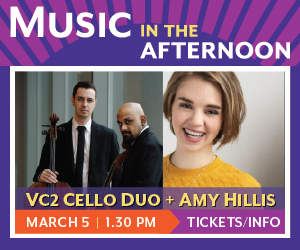 Mozart – Piano Concerto No.5 & Church Sonata No.17
Mozart – Piano Concerto No.5 & Church Sonata No.17
Robert Levin; Academy of Ancient Music
AAM AAM042 (aam.co.uk)
At first glance, the music contained in this recording is somewhat perplexing: of all the incredible music Mozart composed, why choose one full piano concerto, a few juvenile transcriptions, and a church sonata that’s less than five minutes long? There is a reason, and it’s a good one.
In 1993, Robert Levin and Academy of Ancient Music founder Christopher Hogwood set out to record Mozart’s complete works for keyboard and orchestra, with the first of a planned 13 recordings released in 1994. Despite its noble intentions, the project was cancelled midway through, as the advent of downloadable digital music formats in the early 2000s changed the market quickly and drastically. Now, over 20 years later, AAM and Levin are continuing the cycle, scheduled for completion in June 2024, which will become the first-ever recording of Mozart’s complete works for keyboard and orchestra on either modern or historical instruments.
The most aurally striking aspect of this recording is that the Piano Concerto No.5 in D Major K175 doesn’t feature a piano at all, but rather an organ. This is for several reasons, including the necessity of a pedalboard to reach the lowest notes in the keyboard part, the limited upper range, and Mozart’s use of the term Clavicembalo, generic nomenclature that encompassed a range of keyboard instruments. Rather than being impractically theoretical, however, the use of the organ provides great clarity and prominence to the solo part and blends exceedingly well with the ensemble.
The other noteworthy pieces on this recording are the Three Piano Concertos after J.C. Bach K107, through which the young Mozart learned his craft and honed his skills. Far from the masterpieces of his later years, these works were joint efforts between Wolfgang and his fathe, Leopold, who would revise his son’s transcriptions and add embellishments and other instructional guidance. Juxtaposing these early works with only slightly more mature compositions, the younger Mozart clearly learned quickly.
A valuable component of a valuable project, this recording is informative and tremendously appealing, both individually and as part of its larger set.



